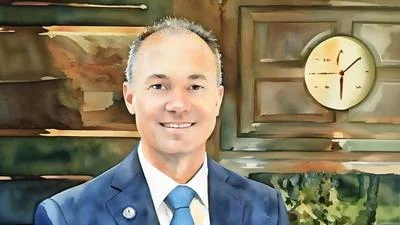Josh Reinstein is at the forefront of a global movement that fuses faith and politics to rally support for Israel. As the director of the Knesset Christian Allies Caucus and president of the Israel Allies Foundation, he leads a vast network of faith-driven political engagement.
"It all started in 2004 when we launched the Classic Christian Allies Caucus in the Israeli parliament," Reinstein says. "We realized it was Christians, not countries, that were standing with Israel, and we had to do something to build that new relationship between Jews and Christians in the 21st century."
Today, the movement spans 54 Israel Allies Caucuses with 1,500 legislators worldwide. "Faith-based diplomacy is responsible for about 80% of all of Israel's diplomatic successes," Reinstein says. "It's the reason we have embassies in Jerusalem, the reason for anti-BDS and anti-Semitism legislation worldwide. It's because people of faith have come together and turned that faith into real political action."
Reinstein’s organization relies on a structured global network. "We have regional directors on every continent, country directors, and volunteer leaders who coordinate activities between sister caucuses," he says. "It's not just a finger; it's a fist."
The movement's impact is tangible. "When the U.S. moved its embassy to Jerusalem, people were shocked, but 700 out of 800 attendees at the ceremony were Bible-believing Christians," Reinstein says. "Christians got involved and made it an ultimatum to elected officials. The president of Papua New Guinea even stated, 'You can't even be Christian if you don't recognize King David's capital.'"
Legislative victories like anti-BDS laws, which exist in 37 U.S. states, also trace back to faith-based activism. "It started in South Carolina, then moved to Florida, Texas, and Ohio,” Reinstein says. “Churches spoke out against boycotting Israel, state legislators got involved, and it became a Christian movement."
Iran remains a major concern for Reinstein’s network. "People didn’t understand the threat of Iran until October 7th,” he says, and adds, “Now, they see it clearly.”
Reinstein sees Bible-believing Christians as pivotal allies. "We believe in the Bible—we believe in the same scriptures—what they call the Old Testament, we call the Tanakh.” He describes this as an important “commonality” that “strengthens both Christian and Jewish faith.” It also leads to a common purpose. “We’re seeing unprecedented cooperation worldwide," he says.
The fusion of religion and politics, according to Reinstein, is an unstoppable force. "In the 1980s, the Moral Majority brought faith into American politics. Now, it's happening globally,” he says. “Most of the world is run by dictators, despots, and tyrants, so we’ll never get a fair shake at the ICC or UN. But in individual countries, we have people willing to stand up for Israel. There are no radical Islamist caucuses in parliaments, but there are Israel Allies Caucuses. That’s significant."
Reinstein is optimistic about the future. "I suspect that in 2025, 14 more countries will move their embassies to Jerusalem,” he says. “We’re seeing a shift in Europe, with anti-Semitic labeling regulations being repealed. The world now understands that Israel needs to decide its own destiny."
At the core of the movement is a prophetic vision. "We see biblical prophecies unfolding before our eyes. The Bible says our enemies will blot out the sky with weapons, but God will go before us,” he says. “That’s what happened when Iran launched missiles.”
Reinstein’s book, “Titus, Trump, and the Triumph of Israel: The Power of Faith-Based Diplomacy,” lays out the vision in detail. "It begins with Titus building the Arch of Titus, claiming to have destroyed the God of Israel and the Jewish people,” he says of the book. “Now, we have a U.S. president recognizing Jerusalem and the Golan Heights. This book explains how faith-based diplomacy works and how people can get involved."
For more information, Reinstein recommends IsraelAllies.org and his TV show, Israel Now News on Daystar. According to him, "the key is to get educated, know what we're doing, and see how you can plug in and get off the sidelines."









